
It is a biblical reflection on how the early church triede to link the gospel of salvation and the social responsibility of the church. It is an endeavour to understand the biblical roots of Christian Social Ethics.
Kraisthava Samuhya Dharmam: Oru Vedapusthaka Padanam
(Christian Social Ethics: A Biblical Exploration)
Tiruvalla: Theological Literature Committee (1972), Pp. 70)

In this book MM examines the political ideologies of modern India. It is an revised edition of the book, Adhunika Bharathathile Rashtreeya Chinthagathikal, published in 1952. In this book, he develops a critique of liberal democracy, Hindu political ideology, Sarvodaya, Anti-brahmanism, Indian Socialism, Indian Communism and Semi-Fascist Capitalism. In the concluding chapter he examines the contributions of Christian theologies to secular humanism.
Adhunika Bharathathile Rashtreeya Prathyaya Sasthrangal
(The Political Ideologies of Modern India)
Tiruvalla: Theological Literature Committee (1983), Pp. 244)

MM writes about the 'acknowledged Christ', not of traditional Hinduism, but of renascent Hinduism. He surveys how some of the foremost spiritual leaders of the Indian renaissance, especially of Neo-Hinduism, sought to understand the meaning of Jesus Christ and Christianity for religion and society in renascent India.
He also studies how the Indian church, in the thought of some of its theologically-minded representatives, has attempted to enter into dialogue with the ideas of these leaders and formulated its own faith in Christ and the meaning of Indian Nationalism. The book closes with an examination of the criteria for an Indian Chriatian theology.
The Acknowledged Christ of the Indian Renaissance
SCM Press, London (1969), Pp.xii+340

The Naga Society is passing through a particularly turbulent period in its history. The transition from a traditional tribal society to the modern technological culture--changes which took many centuries elsewhere--is taking place in Nagaland at a hurling pace, over a span of a few years.
What are the spiritual and cultural dimensions of this transition? Taking this question as his starting point, MM had edited, in the 1960s, a book titled Tribal Awakening. In Nagas towrads AD 2000 he probes deeper into the problem, not any longer as an outsider, but as one who personally experienced the currents and undercurrents of Naga politics and society as the Governor of Nagaland for two years.
The Nagas Towards A.D. 2000 and other Selected Addresses and Writings
Madras: Centre for Research on New International Economic Order (1992). Pp. 226.

In this book, MM thomas presents the story of his personal encounter with the currents and undercurrents of the Ecumenical Movement (its history and theology) from Oslo 1947 to Nairobi 1975.
The author makes his journey through the ecumenical thought world "as an act of thankfulness to God for giving him so much part in the world-wide fellowship of people committed to exploring the meaning of Christ and Church for our modern world and to building up a movement of Christian ecumenism as a spiritual support to the larger ecumenism struggling for human community"
My Ecumenical Journey 1947-1975
Published by Ecumenical Publishing Centre Private Limited,
Trivandrum (1990), Pp. 463.
------------------------------------------------------------------------------------------------
MM thomas authored more than 80 books and numerous research papers and popular artciles over a wide range of issues and themes.
More on his writings will be added soon.


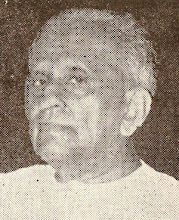
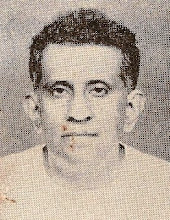



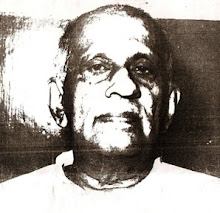
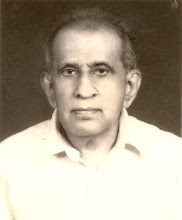
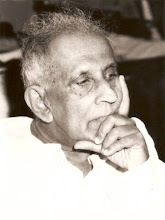.jpg)



No comments:
Post a Comment